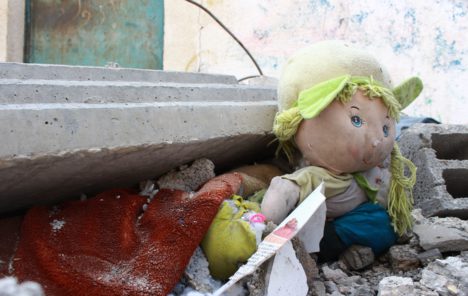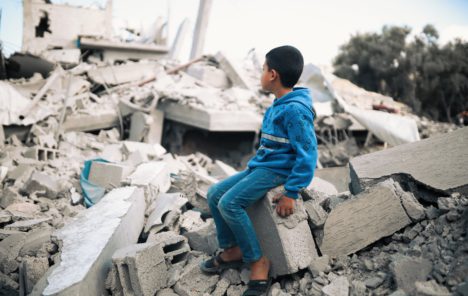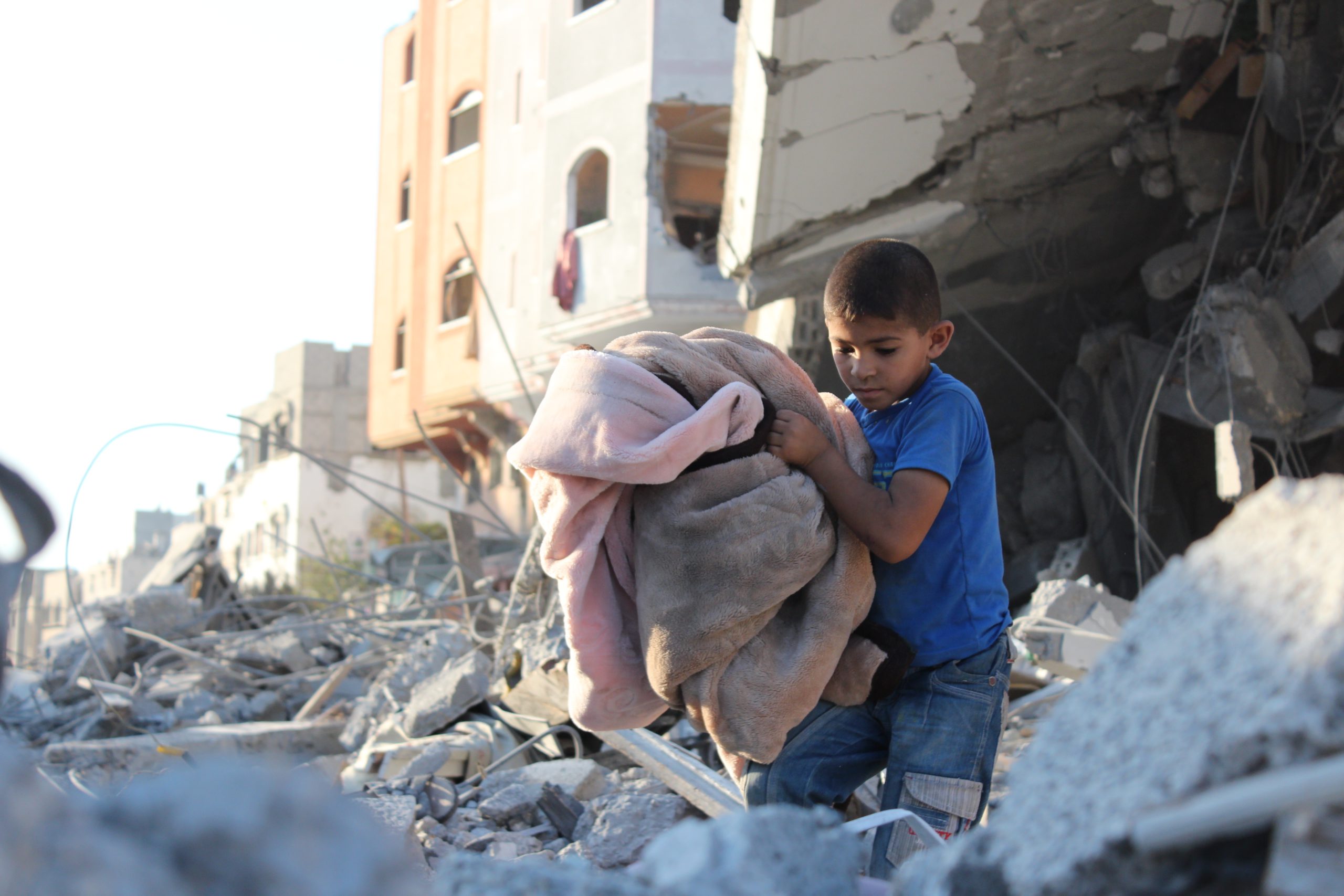Our colleagues (Ali, Fatima and Samih*) from SOS Children’s Villages Palestine tell us about the current situation in the SOS Children’s Village Rafah in Gaza, where 76 children and 16 caregivers are currently staying, with supplies rapidly running out. They describe how the war is impacting the children there and the steps they’re taking to protect them from physical and mental harm.
* Names have been changed to protect the safety of those sharing with us.
Ali’s story: “What’s happening is inconceivable for the mind.”
“We’re grateful that we’re able to care for these innocent children, who are not guilty of what is happening. Knowing that a majority of the victims of this war are children. We, as caregivers, are very afraid something will happen. We hope nothing happens.
“When there is bombing I tell them not to be afraid, and we start singing ‘going up, and going down’. When the rocket is up we say ‘going up’ and when it goes down we say ‘going down’, which means that it dropped far from us.
“As a caregiver staying with the children, I try to calm them down as much as possible. We watch cartoons together, I play with them. We try to comfort them, so they don’t feel what’s happening, because what’s happening is inconceivable.”


Fatima’s story: “We all know there is no safe place right now.”
“During this difficult period, we try to protect children from being emotionally affected by what is going on.
“We currently organise different indoor activities for the children to make them forget about the war.
“I could swear almost every minute we hear airstrikes, artillery attacks, and naval bombardments. Children are able to differentiate between the different types of attacks, despite their very young age.
“Their reaction is usually to panic or to run to the closest source of safety, even if we all know there is no safe place in Gaza right now.
“The most urgent need right now is finding a safe place. After ensuring safety, we work on providing essential needs, which are difficult for everyone to get. For example, we have to stand in very long lines to get bread. We try to provide main necessities such as water, food, medicines, and first-aid materials.
“Electricity shortage causes extreme fear for children at night, especially as they hear the scary bombing sounds. It also causes a shortage in drinking water and difficulty using electric devices, which causes hardship in different areas of life.”
Samih’s story: “They ask us a lot ‘Are we going to die?’”
“Since 7 October our life has turned upside-down. Children are very scared. They ask us a lot ‘Are we going to die?’.
“A child aged two and a half runs to her siblings and hugs them whenever she hears the sound of bombs. She screams out of fear and she closes the windows. Children have the innocent thought the bombings will not reach us if the windows are closed.
“It’s our responsibility to calm the children down by keeping them busy during the long hours of bombings. For example, there’s a child who counts until the bombardment ends, they also pray or imagine sounds are fireworks for a birthday.
“We’re careful the children don’t watch news and social media, to protect their mental health.”
Fayez’s story: “She suffers from severe psychological trauma as a result of what she was exposed to.”
Fayez, a psychologist from SOS Children’s Village Rafah, shares the story of a three-year-old girl found at a check point and who is one of the five children taken in so far by SOS Children’s Village Rafah, in collaboration with a partner agency.
“We’ve taken in five unaccompanied children in the SOS Children’s Village of Rafah.
“One of the children is a three-year-old girl who was found alone at a check point in Gaza.
“She suffers from severe psychological trauma resulting in what’s known as ‘selective mutism’ in addition to anxiety and fear as a result of what she was exposed to.”
However, the young girl’s injuries were not just mental.
“She has received medical support at one of the hospitals in Rafah, due to some physical wounds.
But, with care, affection and by providing the safety and security they have lacked over the last few months of war, the children are turning a corner.
“Despite the very difficult psychological state of the child, one week after she came to live in the SOS Children’s Village with her caregiver Hanane and the other children, she began interacting with others, especially the children in the same house. She began sharing toys and going out to the yard to play.
“She now feels safer and is more able to cope with the traumatic event that she went through.
“We continue to provide specialised psychological assistance to help her according to her specific individual needs.”

